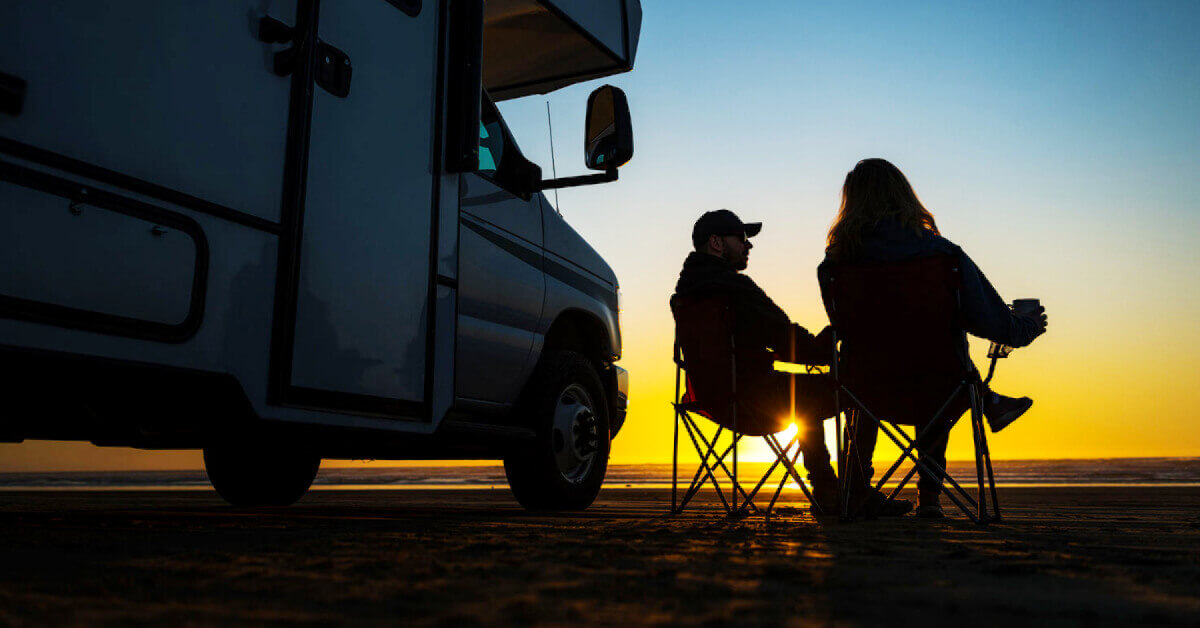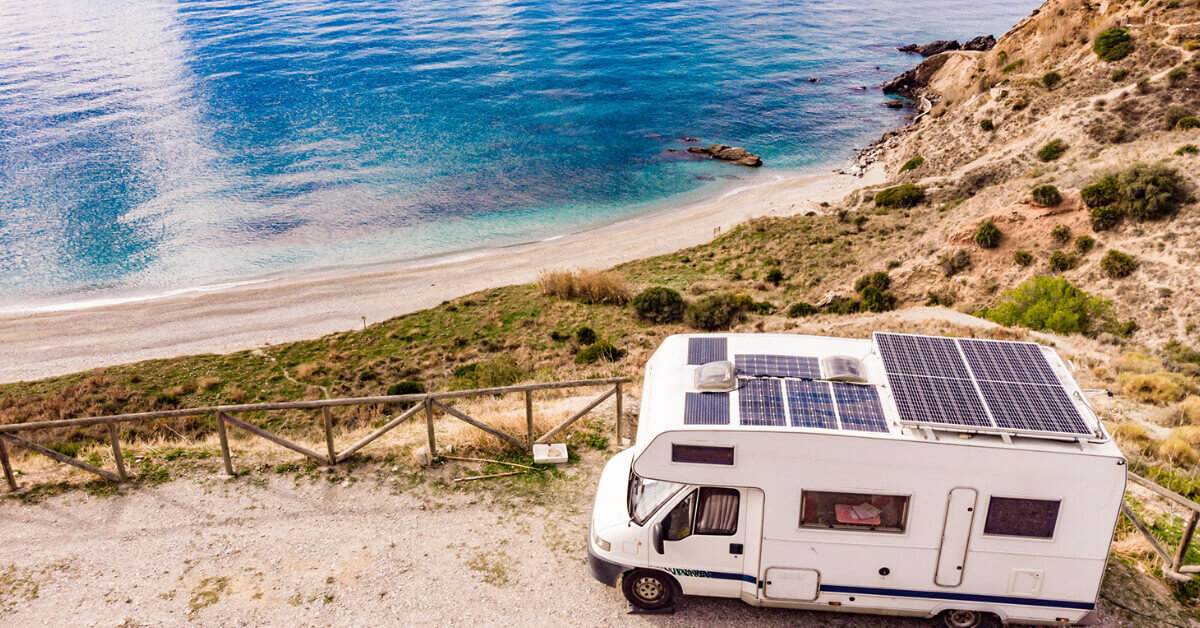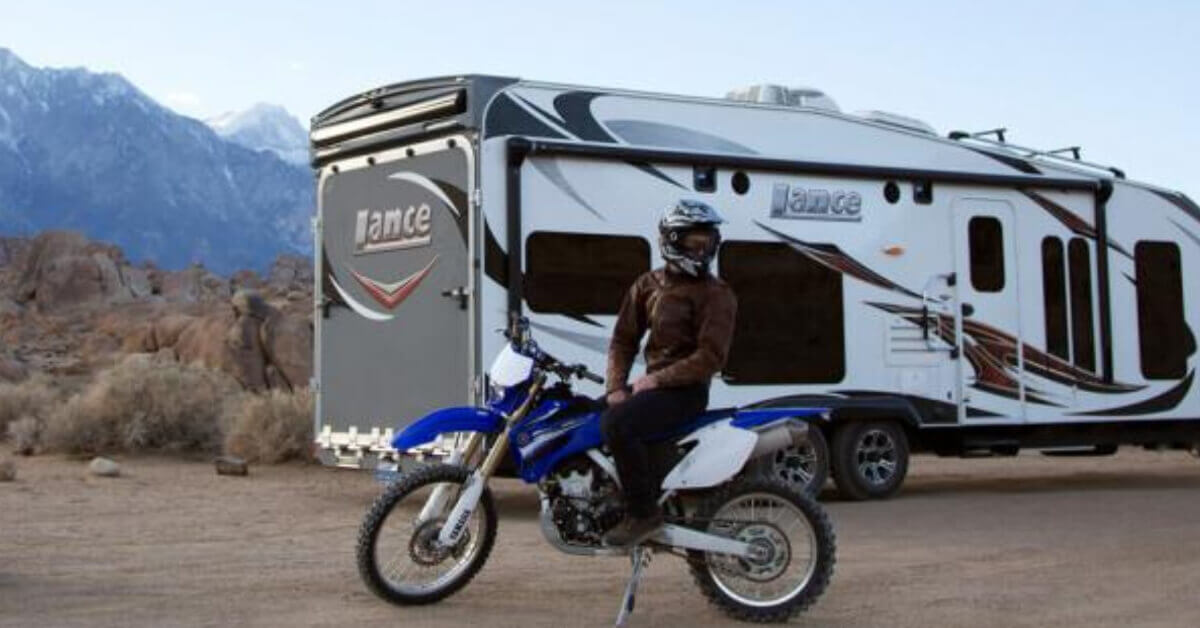- Home Page
- More RVing Tips & Tricks
- Rv Boondocking Essentials
RV Boondocking Essentials
Enjoy Off-Grid Living and Embrace Nature
Here are the RV boondocking essentials you need to start your RV boondocking adventures
What is RV Boondocking?
RV boondocking, which is also known as dry camping or wild camping, is the practice of staying in an RV without hooking up to any utilities, such as electricity, water, or sewer. This off-grid way of RVing allows travelers to escape the crowded campgrounds and experience nature at its finest. In this article, we'll cover the RV boondocking essentials, from gear and location selection to etiquette and resource management.
Benefits
of Boondocking
Boondocking offers several advantages over traditional campground camping. These include:
- Cost savings: Many boondocking locations are free, allowing you to save money on campground fees.
- Solitude: Escape the crowds and noise of campgrounds to enjoy a more peaceful, natural setting.
- Flexibility: Boondocking allows you to explore less-traveled destinations and stay as long or as short as you like.
- Immersion in nature: Experience the beauty of the great outdoors without the distractions of modern conveniences.
Challenges of Boondocking
Despite the benefits, boondocking also presents some challenges, such as:
- Limited resources: You'll need to manage your water, power, and waste carefully, as there are no hookups available.
- Accessibility: Some boondocking locations can be difficult to reach or require a high-clearance vehicle.
- Safety and security: Boondocking often means being in remote locations, so you'll need to take precautions to ensure your safety.
Preparing for Your Boondocking Adventure
Choosing the Right RV
To enjoy the best possible boondocking experience, it's essential to select an RV that meets your specific needs. Consider factors like size, layout, off-grid capabilities, and storage space when choosing your rig.
Essential Boondocking Gear
To have a successful boondocking experience, you'll need to equip your RV with essential gear to ensure your comfort, safety, and convenience.
Solar Power System
A solar power system is crucial for maintaining your RV's battery charge and powering your appliances without relying on a generator. Choose a system that meets your energy needs and consider adding a backup generator for cloudy days or emergencies.
Water and Waste Management
Proper water and waste management are vital when boondocking. Carry enough fresh water for your needs and have a plan for disposing of gray and black water. Invest in portable water containers, a water pump, and a portable waste tank to make handling water and waste more manageable.
Cooking and Refrigeration
A propane or dual-fuel stove is ideal for off-grid cooking. You need to ensure that you have enough propane to last your entire trip. For refrigeration, a 12-volt or propane-powered fridge/freezer will allow you to keep perishable items without consuming too much energy.
Safety and Security
To ensure your safety and security while boondocking, equip your RV with items such as a first aid kit, fire extinguisher, tire repair kit, and emergency communication devices. Additionally, consider installing security measures like a lockable RV door, window alarms, and motion-activated lights.
Finding the Perfect Boondocking Spot
Public Lands
Public lands like National Forests and Bureau of Land Management (BLM) areas offer numerous boondocking opportunities. Be sure to check local regulations and obtain any necessary permits before you set up camp.
Boondocking Apps and Websites
There are several apps and websites dedicated to helping RVers find the perfect boondocking spot. Some popular options include Campendium, FreeCampsites.net, and iOverlander. These platforms allow users to search for free or low-cost camping spots and read reviews from other campers.
Boondocking Etiquette
Practicing good boondocking etiquette helps ensure a positive experience for everyone. Here are a few basic principles to follow:
- Leave no trace: Clean up after yourself and dispose of waste properly to protect the environment.
- Be respectful of neighbors: Maintain a reasonable distance from other campers and keep noise levels down.
- Follow the rules: Observe local regulations and land use restrictions to avoid potential issues with authorities.
Tips for a Successful Boondocking Experience
Conserving Resources
Effective resource management is crucial when boondocking. Here are some ways to conserve water, power, and other resources:
- Use water-saving devices, like a low-flow showerhead and a foot-operated water pump.
- Turn off lights and appliances that are not being used to conserve energy.
- Plan your meals to minimize cooking time and conserve propane.
Staying Connected
Staying connected while boondocking can be a challenge, but it's not impossible. Invest in a mobile hotspot, a signal booster, or satellite internet to maintain internet access during your off-grid adventure.
Dealing with Emergencies
Emergencies can happen anywhere, even when boondocking. Be prepared by carrying a well-stocked first aid kit, knowing your exact location, and having a plan for contacting emergency services if needed.
Conclusion
RV boondocking offers an incredible opportunity to embrace off-grid living and immerse yourself in nature. As outlining the RV boondocking essentials you have learned that preparing properly, choosing the right equipment and location, and practicing good boondocking etiquette, you can enjoy a unique and memorable adventure. So, gear up, find that perfect spot, and get ready to experience the joys of off-grid RVing! Happy RVing!






Comments
Do you have a comment on this topic? You can leave your comment in the box below.